Eid al Adha 2021’s Fashion Trend Is Sustainability : NPR

Fatima Ibrahim wears Haute Hijab’s recycled chiffon hijab on Eid al-Fitr.
Haute Hijab
hide caption
toggle caption
Haute Hijab

Fatima Ibrahim wears Haute Hijab’s recycled chiffon hijab on Eid al-Fitr.
Haute Hijab
This week, Muslims around the world will finally be able to debut their finest abayas, salwar kameezes, kaftans and thobes they’ve been saving in the backs of their closets for three pandemic Eids. For a growing number who have rethought their fashion choices during that time, those glitzy, intricately woven pieces will be more sustainable.
Eid al-Adha, the Muslim holiday marking the culmination of the Hajj pilgrimage, begins on July 20. And Muslim designers, noticing a demand for sustainable Eid clothing, have launched eco-friendly pieces leading up to the holiday. Muslim fashion icons, like Halima Aden and Mariah Idrissi, have likewise recently promoted sustainable fashion practices.
“The importance of sustainability and ethical practices … we do believe it will be very important now and especially during Eid,” said hijab designer Lena Aljahim.
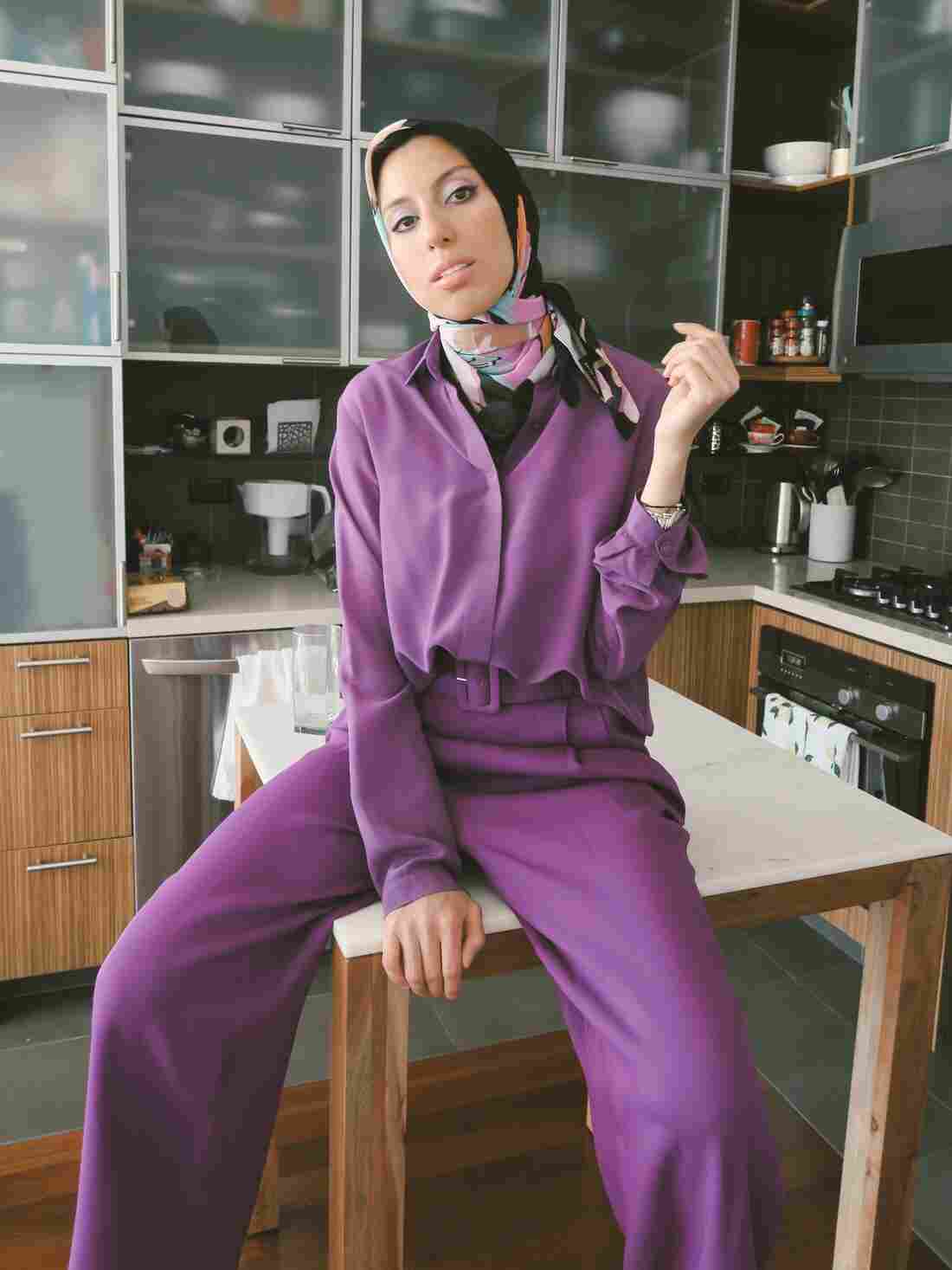
Melanie Elturk wears a monochrome outfit from eco-conscious brand Bouguessa.
Haute Hijab
hide caption
toggle caption
Haute Hijab
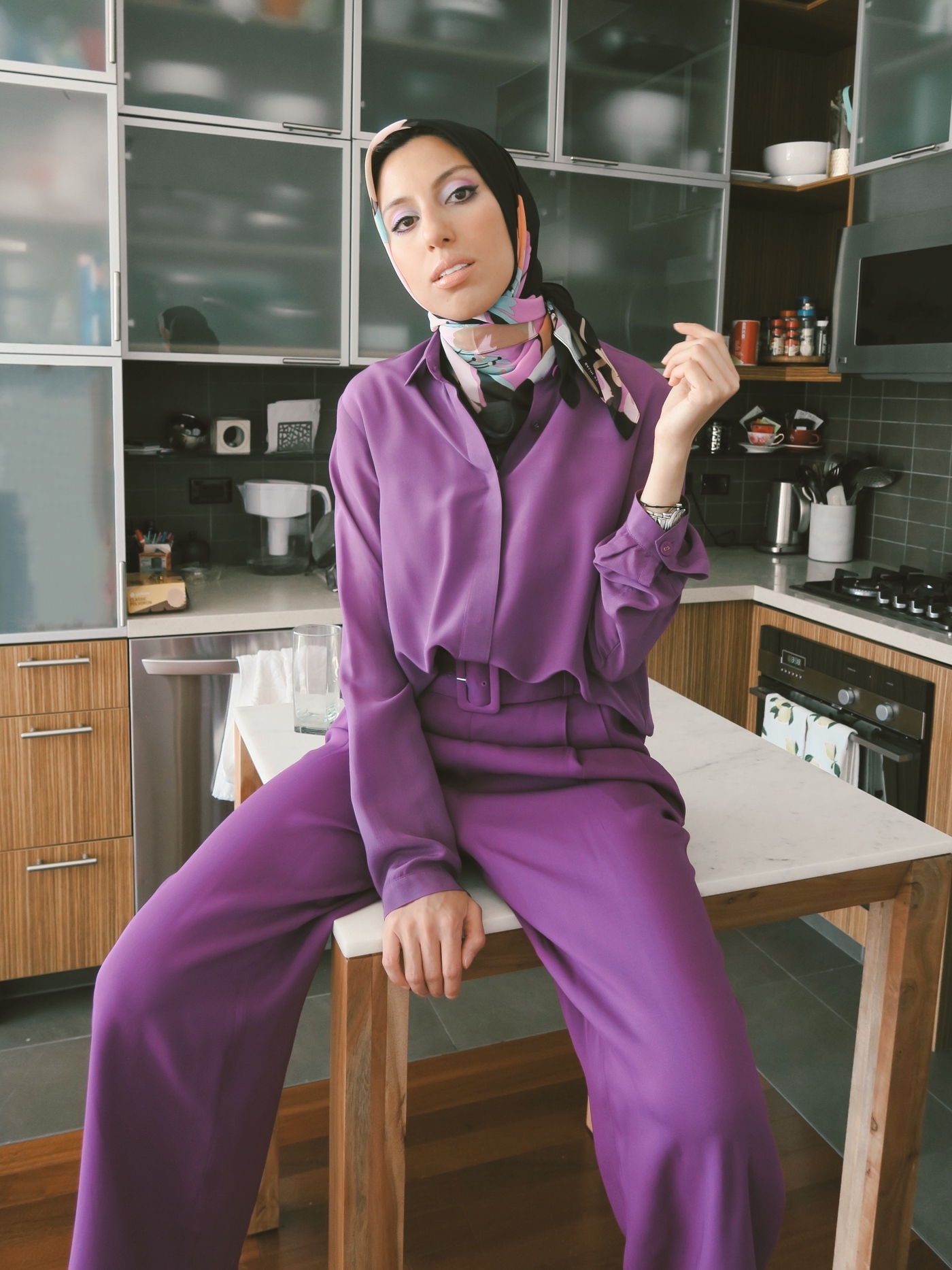
Melanie Elturk wears a monochrome outfit from eco-conscious brand Bouguessa.
Haute Hijab
Every year, Muslims spend $2.2 trillion on “faith-inspired ethical consumption needs.”
“Clothing sustainability is growing in popularity with consumers and has also been the theme of many modest fashion events,” according to the 2020/2021 State of the Global Islamic Economy Report. Modest fashion is a term used to describe the conservative clothing style that Muslims adopt. The latest Modest Fashion Week — days of Muslim-oriented fashion shows — in 2019, for instance, featured sustainability as one of its key themes, with a slew of Muslim designers releasing pieces made out of eco-friendly raw materials or technology.
The modest fashion market’s value will be $402 billion by 2024, the report estimates. Millennial Muslims, one of modest fashion’s biggest consumer groups, are leading the demand for sustainability.
It aligns with Islamic values
British fashion designer Ainara Medina launched her sustainable modest wear company Nea Wear mid-pandemic, after noticing a growing movement of fashion forward Muslims becoming mindful of where their clothes come from. To make it sustainable, Medina told NPR she upcycles fabrics and uses an eco-friendly supply chain, from manufacturers to shipping companies.
“Us being in lockdown and spending more time at home, having more time to think about things, I do believe that has impacted the choices we make and the way we consume,” Medina said. “There is a lot of Muslim consumers that have started doing the research and understanding the importance of a sustainable fashion and slow fashion.”

Australian influencer Samantha Boyle wears Nea Wear’s satin maxi dress.
Nea Wear
hide caption
toggle caption
Nea Wear
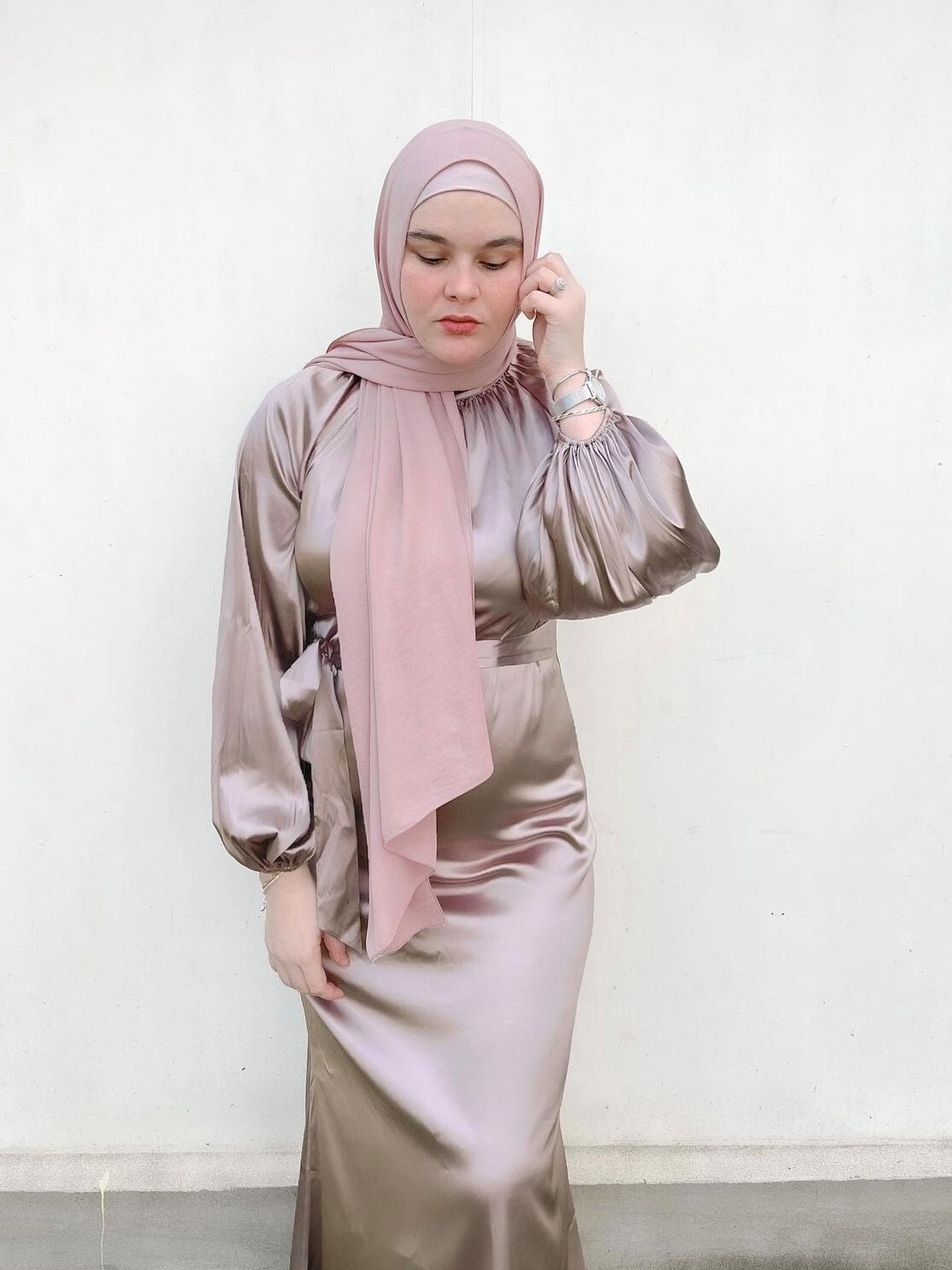
Australian influencer Samantha Boyle wears Nea Wear’s satin maxi dress.
Nea Wear
Conscious consumption aligns with the Islamic values Muslims cherish, she added.
“From an Islamic perspective, we are entrusted to take care of the earth and to look after it, and that means to be obviously environmentally conscious and not harm the environment and subsequently all the beings that live on it,” Medina said.
Medina released a special Eid collection of silky dresses, merging sustainability and glamor.
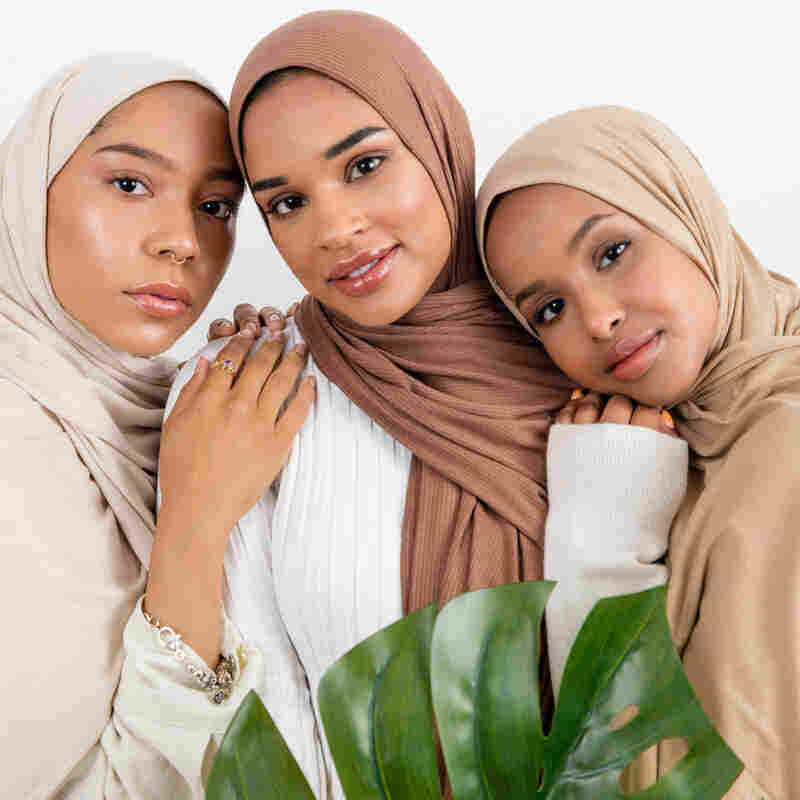
Fayena, a new sustainable hijab company, makes its hijabs out of eco-friendly natural fibers.
Malaika L Hilson/Fayena
hide caption
toggle caption
Malaika L Hilson/Fayena
Like Medina, Fakhrya Alshubi and Lena Aljahim from Dearborn, Michigan, released their sustainable modest wear line Fayena during the pandemic, in November 2020. They wanted to bring Muslim consumers an alternative to unsustainable and unethical fashion, which they said was often the most accessible option.
And the sales of their eco-friendly fiber hijabs have skyrocketed as Eid nears.
“Especially during Eid, girls are looking for better quality hijabs and more value,” Aljahim told NPR.
Sustainable is now more accessible
Older Muslim-owned companies are gearing up initiatives to innovate sustainable lines.
“By virtue of the fact that things are more available on a sustainable level, I think that people will, if afforded the opportunity, gravitate towards them,” said fashion influencer Melanie Elturk.
Elturk, CEO of Haute Hijabs, told NPR that sustainability has been a hallmark of her New York-based company since it was founded in 2010, when she repurposed vintage scarves into hijabs.
Realizing Muslim consumers were becoming more cognizant about the products that they purchase and the brands that they’re willing to invest in, Elturk further explored sustainable fashion. In April, the company released recycled chiffon hijabs made from 7 to 8 recycled plastic bottles to help reduce its carbon footprint. Last year, Haute Hijab released woven hijabs made out of renewable bamboo.
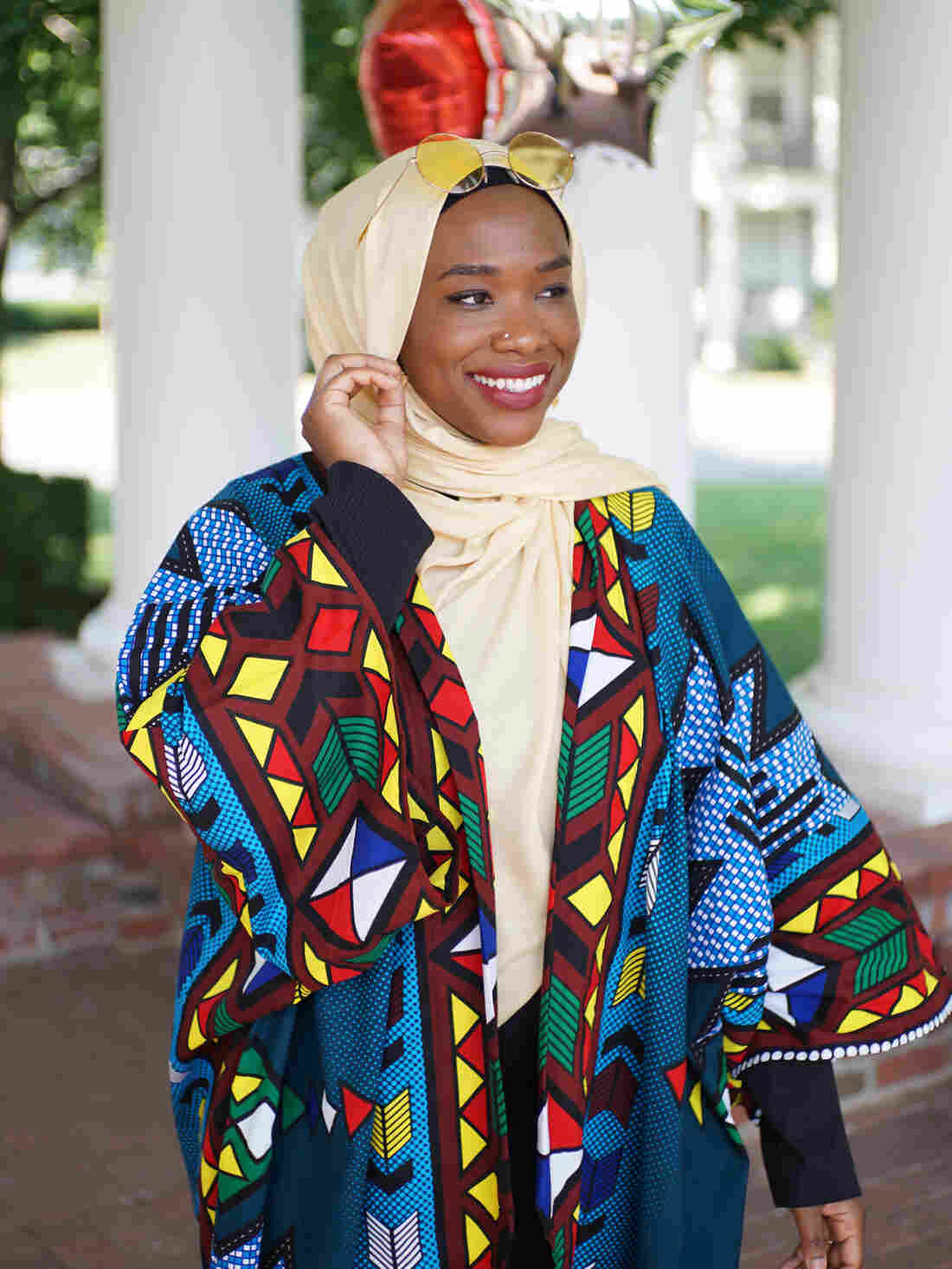
Hakeemah Cummings wears Haute Hijab’s Daffodil Bamboo Woven and bamboo/silk blend undercap.
Hakeemah Cummings
hide caption
toggle caption
Hakeemah Cummings

Hakeemah Cummings wears Haute Hijab’s Daffodil Bamboo Woven and bamboo/silk blend undercap.
Hakeemah Cummings
The trend will only get bigger
There will be an even bigger shift toward sustainability for Muslim consumers within the next three to five years, Alshubi predicts.
This Eid, the fashion designers want to avoid overconsumption.
Medina is buying her outfit from designers who acquire their premade fabrics in small quantities. Alshubi and Aljahim are going thrift shopping for their Eid fits. Elturk said she’ll be wearing classic staples, after making an effort in the last three years to stop buying fast fashion.
The best way to dress sustainably for Eid? “To become a more conscious consumer is to really think … about what you’re investing in and if it’s really worth it,” Alshubi said. “Trends will always come and go.”
Dalia Faheid is an intern on NPR’s News Desk.
